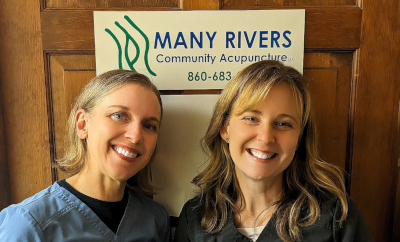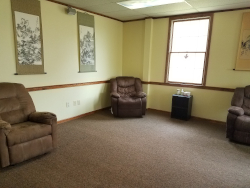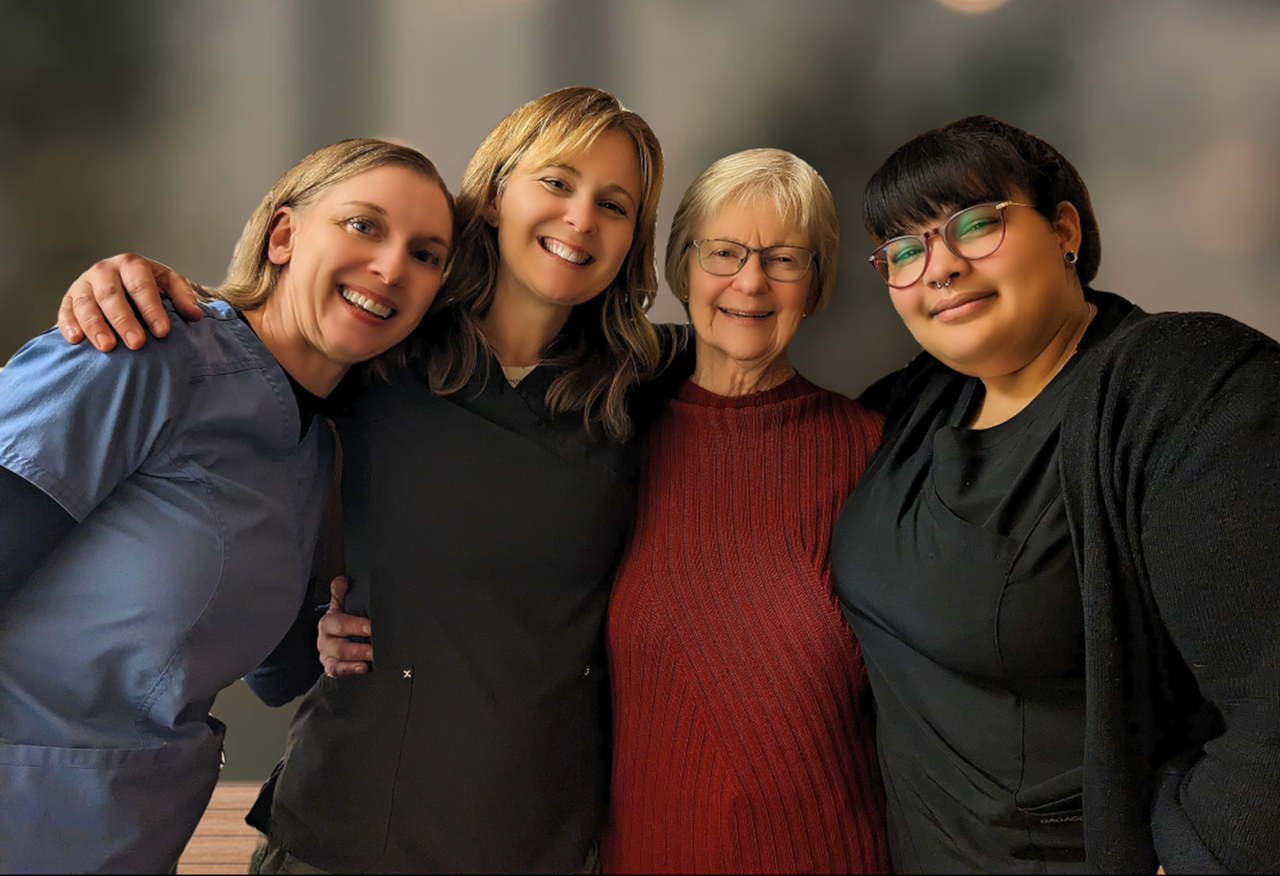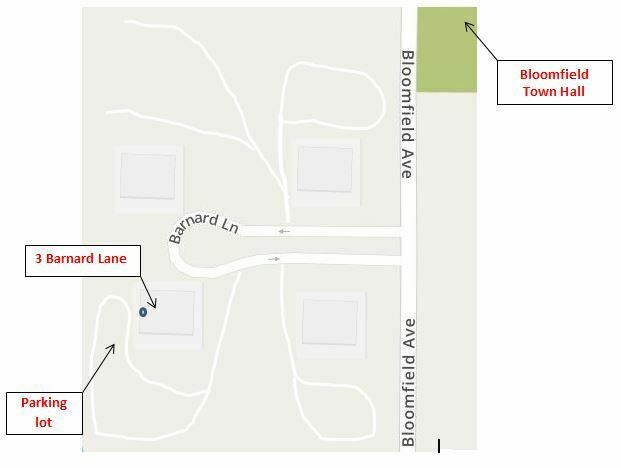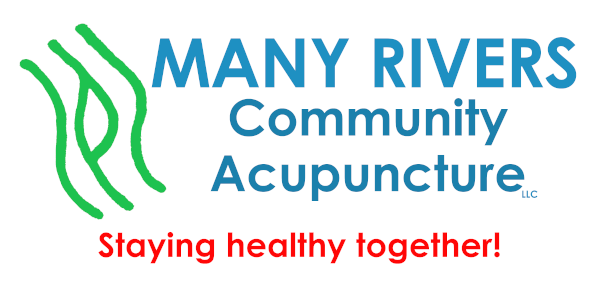
Quality acupuncture at an affordable price.
3 Barnard Lane, Suite 205
Bloomfield CT 06002
Community Appointments
Mon: 9:00 am – 11:40 am
Tue: 2:00 pm – 6:40 pm
Wed: 2:00 pm – 6:40 pm
Thu: 12:30 pm – 5:10 pm
Fri: 9:00 am – 1:00 pm
Private Appointments
Mon: 1:00 pm – 5:00 pm
NEWS AND UPDATES
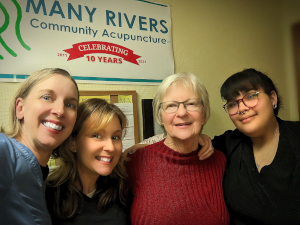
PAY WHAT YOU CAN: SLIDING SCALE
Affordable Rates!
COMMUNITY ACUPUNCTURE
Returning Patients $30 – $45 sliding scale for follow-up treatments ($25 hardship rate)
New Patients $50 for your first community treatment
Pay whatever you wish on the sliding scale, no questions asked and no income verification required!
We believe that healthcare is a basic human right. Your payment amount has no bearing on your treatment time or quality – you will receive a customized treatment targeted to your needs regardless of how much you pay.
PRIVATE PAIN MANAGEMENT ACUPUNCTURE
Returning Patients $60 – $80 sliding scale for follow-up treatments
New Patients $100 for your first private pain management treatment
Acupuncture is HSA & FSA eligible!
We do not accept insurance, but we can give you a receipt to submit to your insurance company for reimbursement. Insurance companies won’t let us bill them directly because we have a sliding scale.
New Patient Deposit: $25 deposit to schedule a new patient appointment. This deposit will be applied toward your treatment fee when you arrive for your first treatment. If you need to cancel your first treatment and cannot provide 24 hours’ notice, the deposit will be used for the fees incurred.
Late Cancellation Fee: $25 fee for returning patient community treatments, $50 fee for new patient community treatments, and $60 fee for private treatments if the appointment is cancelled without 24 hours’ notice.
No Show Fee: $35 fee for no-shows for returning patient community treatments, $50 fee for new patient community treatments, and $70 fee for private treatments.
Late Arrival: $25 fee if you are late for your appointment and we do not have room to accommodate you for returning patient community treatments, $50 fee for new patient community treatments, and $60 fee for private treatments.
How does the sliding scale work?
The purpose of the sliding scale is to make acupuncture affordable for YOU.
You choose what you can afford to pay on the scale, no questions asked, no financial documentation required.
It’s that simple. You get a great treatment, customized to your needs, each and every time, regardless of how much you pay.
We accept credit/debit cards and FSA/HSA cards
We will keep your card securely on file, and charge it when you arrive for your appointment. You will receive a receipt via email.
We apologize that, for the safety of our staff, we cannot accept cash or check payments.
We will automatically charge late cancellation and no-show fees to your card.
Cancellation Policy
To keep our prices affordable, we have a strict cancellation policy.
We require 24 hours’ notice for any cancellations.
We charge a fee for appointments cancelled with less than 24 hours’ notice, for late arrivals, and for no-shows.
You must either use the online schedule or call (860) 683-0011 or to make/change/cancel an appointment. We cannot process appointment changes or cancellations via email.
Note that by providing a credit card number to Many Rivers, your credit card will automatically be charged late cancellation, late arrival, and no-show fees.
For more information, read our Cancellation and Late Arrival Policies.
Late Arrival Policy
We schedule appointments every 10 minutes in our community clinic.
Your appointment with your acupuncturist is 10 minutes (for returning patients) and 20 minutes (for new patients). Although your treatment time is up to an hour (you may rest in your chair with the needles for up to 1 hour), your actual appointment time as a returning patient is 10 minutes.
You are expected to be in your chair and ready for needles at your appointment time. Please arrive with ample time to use the bathroom, check in with the receptionist, and hang your coat BEFORE your appointment time.
If you are 1 or 2 minutes late, you can still receive a treatment but your acupuncturist will only have time to insert a few needles (you will not get a full treatment).
If you arrive 4 or more minutes late, there will not be enough time to insert your needles. You will be asked to wait until the next opening during that shift (if available).
If you are late and we are unable to fit you in, or you are unable to wait until we can fit you in during that shift, we will consider it a missed appointment and will assess the late arrival fee.
Treatments are given in our relaxing community room
Our warm, comfortable treatment room has cozy La-Z-Boy and lay-flat recliners, so you can put your feet up, stretch out, and relax. Our chairs are spaced well over 6 feet apart for your safety. Being in a community room with others who are also receiving acupuncture can make your treatment more powerful, by enveloping you in a collective feeling of calmness. And if you are nervous about your first treatment, seeing others who are peacefully enjoying their experience can be quite comforting. You may feel relaxed the moment you walk through our front door!
Treatments last 45 minutes to 1 hour
Treatments are given on an affordable sliding scale
By giving individualized treatments in a community room, we are able to keep our costs low and our quality high. Our sliding scale lets you pay what you can afford so that you can receive as much treatment as you need.
How does Community Acupuncture compare with acupuncture in China?
In China, most acupuncture is given in large rooms rather than in individualized settings. However, when acupuncture came to the United States, this model was replaced by the Western model of one-patient-per-treatment room. Since many American acupuncturists only see one or two patients per hour, they charge anywhere from $65 to $150+ per treatment, making acupuncture inaccessible to much of the American population. Many Rivers makes acupuncture affordable and accessible by giving acupuncture treatments customized to each patient’s needs in our community treatment room.
Read more about acupuncture in China.
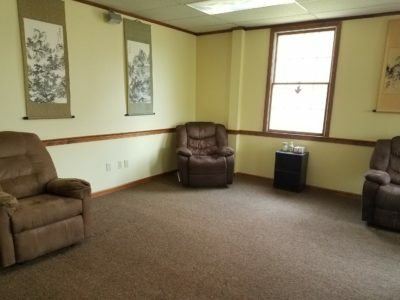
Our community treatment room

We love our patients!
MY FIRST TIME WITH ACUPUNCTURE…
• Welcome! Learn about our affordable sliding scale and our community clinic.
• Book your appointment online or call us at (860) 683-0011 to schedule.
• For your first treatment, a $25 deposit is required to book the appointment. This deposit will be applied toward your treatment fee when you arrive for your initial treatment. If you need to cancel your first treatment and cannot provide 24 hours’ notice; if you arrive late and we are unable to fit you in; or if you arrive without your paperwork filled out before your appointment time, the deposit will be used for the fees incurred. We accept all debit cards, credit cards, and HSA/FSA cards.
• We provide everyone with a paper sheet to cover their treatment chair. But most people prefer to bring their own fabric sheet to cover their chair, and a small blanket to stay cozy. We have fabric sheets and fleece blankets to purchase for $6 each if you don’t have your own.
• All patients are required to wear a mask at all times in the clinic and hand sanitize before entering.
• Please read the list of Safety Policies before your first treatment.
• Be sure to look at the Directions page so that you can find our parking lot and building entrance!
Preparing for Your Treatment
• This is a community acupuncture clinic. This means that you will receive your own customized acupuncture treatment in a large, quiet room with others who are also receiving acupuncture. We will speak in whispers and keep our talking to a minimum to maintain this oasis of peace.
• Please wear comfortable and loose fitting clothing that can roll easily above your elbows and knees.
• We generally use acupuncture points on the head, below the elbows, and below the knees. We can treat the entire body with these powerful points.
Your First Treatment
• Your Acupuncturist will review your health history, answer any questions that you may have, and create a treatment plan for you.
• Then you will enter the treatment room. Your Acupuncturist will direct you to your recliner. You can put your own sheet over your recliner, or your Acupuncturist will give you a paper sheet. After you sit, please remove your shoes and socks and roll your clothes above your elbows and knees.
• After the needles are inserted, your Acupuncturist will help you get comfortable under your blanket if your brought one. Then you can close your eyes and relax. We recommend staying for at least 30 minutes, although 45 minutes to an hour is even better.
• We have soft background music playing, but you are welcome to bring headphones to listen to your own relaxing music or a guided meditation during your treatment.
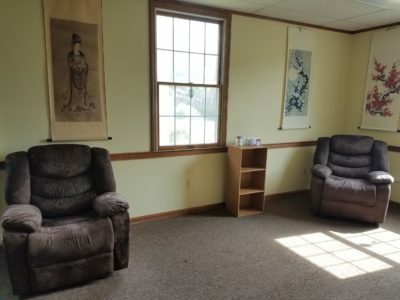
Our recliners are spaced well over 6 feet apart for your safety.
What does acupuncture feel like?
How many treatments do I need?
Acupuncture is a process. It works by stimulating the body’s own self-healing mechanisms. It is gentle and gradual. Almost everyone who gets acupuncture will need a series of treatments to get good results. We hope that you’ll feel better right after your first treatment, but to get these results to ”stick” you will probably need a series of treatments closely spaced together. Each treatment builds upon the previous one — acupuncture is cumulative. Your acupuncturist will create a treatment plan especially for you. Here are some general recommendations:
- New conditions: For new problems – such as if you recently twisted your ankle or your back just went out – then 2 (or sometimes 3) treatments a week for 2 to 3 weeks will usually do the trick. After that, your acupuncturist will help you determine if further treatments are still needed.
- Chronic conditions: For chronic problems – such as if you have pain that’s lasted many months or years – then it’s most effective to start with treatments twice a week for one month and then gradually decrease the frequency as you improve. After the first month or about 10 treatments, you and your acupuncturist should have a good understanding of how you respond to acupuncture and how long your course of treatment should last.
Acupuncture works best when it is frequent and regular. So if you don’t come in often enough or for long enough, acupuncture probably won’t work well for you. In fact, you will spend less money and less time by getting treated frequently in the beginning, than if you come sporadically for a long period of time. We strive to make your course of treatment as quick and effective as possible.
What can acupuncture treat?
Here are some of the conditions most frequently treated at Many Rivers.
Don’t see your issue on the list? Don’t worry! There wasn’t enough space to list everything acupuncture can treat! Call us and our experienced staff will let you know if acupuncture may be able to help you.
Can I listen to music during my treatment?
Absolutely! We have calming, quiet background music playing, but you are welcome to bring headphones to listen to your own favorite relaxing tunes.
And we highly recommend meditating or listening to a guided meditation during treatment – it can enhance the therapeutic effect. Check out the free Insight Timer app for Android and iPhone! One of our favorites is The Magic Healing Blanket.
If you want to listen to ambient sounds similar to what we play in the clinic, listen to Northern Lights from myNoise.net.
MyNoise.net also has wonderful nature sounds and Tibetan chanting. They have a free app on Google Play or iTunes.
Have tinnitus? Try myNoise.net’s Neuromodulator for tinnitus relief.
Can I get treated with a friend or family member?
Of course! One of the benefits of our community treatment room is that you can come together with friends or family. Each person being treated needs to reserve their own appointment slot, so you will each need to log in to the online schedule individually to reserve a time.
Communities we serve
Voted Best of Hartford!
We are extremely honored to be voted Best Acupuncturist in 2015, and #2 in 2016 and 2017. Thank you for your votes!
(Unfortunately, as of 2018 CT Now no longer has a category for Best Acupuncturist.)



Testimonials
“These folks at Many Rivers can help with whatever hurts. Kind, caring and professional. You will feel amazing. They are truly gifted.” – M. T.
“I was a big skeptic about acupuncture, and I only tried it because of my daughter’s strong insistence. I had two complete knee replacement surgeries and was experiencing some lingering pain. After two treatments, I was amazed! I could walk more easily and faster and I didn’t limp – honest! The best surprise was the treatments weren’t painful. I have changed my attitude!” – S.N.
“I started going to acupuncture to help allergies. I quickly realized how it’s a one-stop shopping cure-all! It’s the only thing that keeps my endometriosis in check. And whenever I have trouble sleeping or feeling an illness coming on, one treatment gets me back on my way to my everyday life. Every one of the acupuncturists are professional, compassionate and are amazing at their jobs. I can’t recommend Many Rivers enough.” – L.S.
“I have suffered from chronic dental pain from the removal of my wisdom teeth and TMJ for over ten years. In the last couple of years the TMJ became so severe that I began suffering from TMJ associated migraines for weeks at a time. I was in extreme pain. I have a B.S. in Chemistry and an M.S in Mathematics. I approached acupuncture as an experiment, noting how I felt immediately after and a few days after each treatment. I have found the treatments very helpful. When my symptoms were at their worst a couple of treatments substantially reduced the migraine pain, as well as the pain in my ear and jaw. Additional treatments brought me to a steady state with minimal pain and muscle soreness. A combination of a NTI night guard and a couple of acupuncture treatments every few months as needed have kept me in a stable state. Since I use community acupuncture it is inexpensive and easy to get an appointment. This is a great solution for me.” – J.N.
“Thank you Many Rivers! I have had such a positive experience. The staff are wonderful, kind and patient. I tried numerous things for my plantar fasciitis but this has been the only thing that has worked. I now bring my daughter for treatment also.” – M.C.
“I like to express my appreciation to Carrie and Mary at Many Rivers Acupuncture. They both have given me such relief due to my arthritis/ inflammation issues. I am so grateful my physical therapist approved going to acupuncture and suggested to continue with his exercise plan. It is definitely something a person should faithfully try before ever having surgery. I say the little needles are not painful at all and the nap is the best!!!! The two acupuncturists that I go to are so knowledgeable and their bed side manner is excellent. I have been going to acupuncture for over a year. My bursitis in my hip is completely gone but I have a flare up with my arthritis in my hands so have gone back once a week for the past month and feel so much better. Thank you to all, Susan, Sandy and the acupuncturists, it has been my pleasure coming to Many Rivers Acupuncture.” – C.F.
“I’m so grateful I found everyone at Many Rivers. My energy has changed and I feel calmer than I have in a long time.” – P.B.
“Acupuncture has helped treat my neuropathy symptoms. The acupuncturists at Many Rivers are highly skilled and compassionate. The sliding scale makes it affordable for more visits initially and maintenance appointments later on. I would describe it as relaxing and refreshing with a positive impact on stress and mental/physical pain. Online scheduling convenience is terrific.” – J.B.
“I spent the first two decades of my life surviving extreme chronic sexual and physical violence. Carrie has earned my trust with her fearless listening, gentle strength, patience, and kindness. She consistently communicates what she is doing before she does it (without my even having to ask.) She is nonjudgmental, unobtrusive, intuitive, and always attentive to my ever-changing needle sensitivity, accommodating my current needs.” – L.P.
“I arrived in the Hartford area a little over a year ago. I was worried that I would have difficulty finding a new community acupuncturist. A friend told me about Many Rivers. I have been so pleased from my first treatment until the present. Each acupuncturist has a little different manner but all are kind, caring and knowledgeable. They have a wonderful system and you never have a long wait to be seen and the cost is reasonable so you can come as often as you need to. I highly recommend this health care gem!” – P.F.
“The team at Many Rivers has done wonders for my many aches and pains (and stress!). My neck, knee, shoulder and back have all been helped, and the team’s friendly and gentle approach makes each visit easy and stress free. I can’t thank them enough!” – K.K.
“I started coming to Many Rivers about 3 years ago after falling and breaking my elbow and wrist. I was going to physical therapy and massage therapy after the surgery and my massage therapist recommended Many Rivers thinking it would be a good addition to my rehab plan. After my first session the pain relief was amazing and I knew that acupuncture would be an integral part of my healing process. The range of motion I gained surpassed my surgeon’s expectations and I know that acupuncture was a contributing factor. The staff are all knowledgeable, caring, and compassionate and adjust their treatment plan to meet your needs. I continue to come to acupuncture on a weekly basis now as it has now become a part of my overall wellness plan. I can’t imagine life without acupuncture!” – L.B.
“After injuring my ankle again from a previous injury I was in a great amount of pain. A number of days later the pain was no better. Someone suggested that I seek acupuncture for the pain. I was very skeptical about this but had to try something to get rid of the pain. My first visit they inserted the needles in the opposite foot which seemed very strange to me but I could actually feel the pain reduce almost immediately. After the second visit it was significantly better and I was able to stop taking pain killers. I have not had any problems with the ankle since the treatment. Have and would recommend it to anyone.” – E.G.
“I came in to Many Rivers for treatment twice a week for about eight months and once a week since. My initial complaint of severe pain in my forearms was completely resolved in a month or so and I continue to be pain-free. I continued treatment long after my initial complaint was resolved because of many wonderful improvements in my physical and mental health. I had gotten to the point of defeat with many long-standing mental and physical symptoms I had assumed were permanent. The impact on the quality of my life was significant although I was in complete denial about it. Thanks to consistent treatment my overall physical and mental health have profoundly improved in ways I never imagined.” – L.P.
“Finding POCA and Many Rivers was a godsend: Acupuncture in a soothing atmosphere, an operation that runs efficiently and serves clients well – and at a fee I can afford. It works! And is my first choice, an alternative to disappointment with Traditional Western medicine. – L.A.
“Carrie gave me acupuncture on my wedding day. She was caring, professional and detail oriented. I felt safe under her care on such an important day. After my treatment, I was in less physical pain and was also much more relaxed. I’m confident my treatment improved the quality of my wedding day. I would definitely recommend Carrie as a practitioner.” – J.H.
“I am a runner and have arthritis in my lower back. Back in 2012 I did my first half-marathon in July, my second one in September, and my third one in October! In my second and third half-marathons, by mile 8 I found it very difficult to continue, but did and finished!! I started coming to Many Rivers after my September half-marathon in 2012 and I combined my chiropractic appointments concurrently. At the beginning, I was coming to Many Rivers three times a week! As the years passed I am now down to once a week visits; the pain is so much less that what it used to be…I also have come in when I had the flud, cough, upper respiratory infections, headaches, nausea, stress, and for grief too. Many Rivers is my sanctuary where I can come, relax and be at peace…Carrie, Heather, Mary, Bob and Gloria are all excellent acupuncturists, and both Sandy and Susan are very pleasant receptionists!” – D.C.
“I have struggled with TMJ disorder for over 15 years. I was in constant pain and even had difficulty sleeping because I would wake up many times during the night to “crack my jaw”. With a night appliance and 2400 mg of ibuprofen daily I survived, although not very well. With the constant urging (make that nagging) of my mom I finally decided to give acupuncture a try. Being a pharmacist highly trained in Western medicine, I really didn’t think it would help but I didn’t see a risk, so I finally decided to make my first appointment. I was in very bad shape and on day one I walked out able to open my mouth without the bone on bone noise and pain-free. Pain-free!!! After a couple of months of treatment I now function pretty much normally and only use about 800mg of ibuprofen per month (usually unrelated to my jaw). Scientifically I still do not understand acupuncture but I KNOW without a doubt that it has changed my life.” – C.H.
“I highly recommend Carrie Sawtell both for her high level of professionalism and also her effectiveness as an acupuncture practitioner. Carrie consistently demonstrated both knowledge and skill as she treated me for a number of ailments or conditions. She thoroughly answered my questions and made sure that I was always comfortable. Carrie customized each treatment based on my needs.” – K.S.
“Thank you for helping me with two pesky issues. Your care always makes me know I am getting very personal attention. I am fortunate your facility is so near where I live.” – A.C.
“I have done acupuncture for over 40 years, especially for allergies. I am so glad that I now have found community acupuncture. It is great and financially so much better for me.” – C.G.
VIDEOS and PRESS
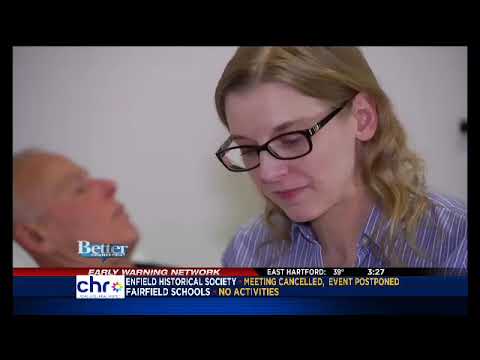
Watch this video on YouTube
Channel 3’s Better Connecticut featured Many Rivers!
(This was filmed at our previous location. Check out our Photo Gallery for pics of our current clinic.)

Watch this video on YouTube
Learn one simple point you can press to relieve nausea, vomiting, and morning sickness. This point can also help with insomnia, anxiety, depression, and palpitations.
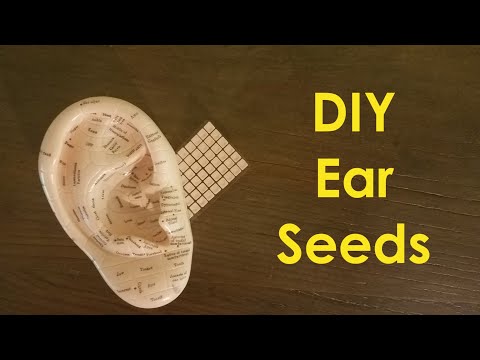
Watch this video on YouTube
Learn how to use ear seeds for stress, anxiety, depression, insomnia, and addiction.
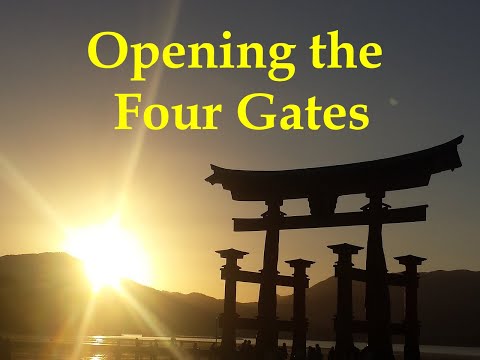
Watch this video on YouTube
The Four Gates are a two point combination that boosts immunity, increases circulation, and stops pain. Press these two points, called LI 4 and LIV 3, whenever you need a pick-me-up.
PRESS ABOUT MANY RIVERS
PRESS & INFO ABOUT COMMUNITY ACUPUNCTURE
Want a peek inside Many Rivers?
DIRECTIONS
3 Barnard Lane, Suite 205 Bloomfield CT 06002
The parking lot and an accessible entrance are at the rear of the building on the ground floor.
Suite 205 is on the first floor. The stairs to the first floor are immediately to the left as you enter the building from the rear parking lot, or go straight past the stairs to the elevator. Note: To get to our floor, press the 1 button in the elevator. The ground floor and parking level are button B on the elevator.
Have questions? Call us! (860) 683-0011
Many Rivers Community Acupuncture, LLC
PO Box 533
3 Barnard Lane, Suite 205
Bloomfield, CT 06002
![]()
![]()
